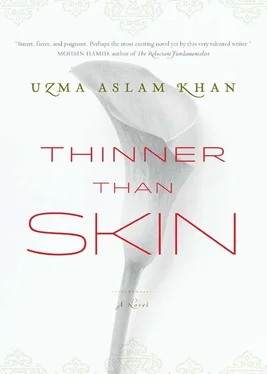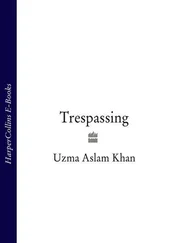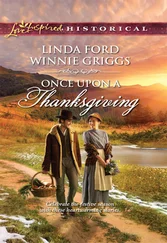Maryam hastily ended her prayers — she did everything in a hurry this year! — and walked around the pillars, the ones left behind from an age of rubies. They held up the cave the way sticks are meant to hold up a tent — again her thoughts drifted to the plastic sheeting, sagging and leaky, and to Kiran, whose movements could not be contained — though in truth, the cave did not need them. Like a womb, it was complete in itself. The deeper inside the womb she moved, the narrower it grew, and cooler. The drop in temperature soothed her. She pressed her palms to the walls, hunched her shoulders, let the tightening enclose her. Her fingers traced scratches from a time before. Hunters with turbans, hunters with bare heads. Antelope and buffalo. Owls and horses. Her favorite glyph was that of three horses, one bowing, one dancing, and the third looking back. Hospitality, liberty, and memory. On either side of the trinity hovered an owl, each vaguely ovoid, with eyes wide as wheels. Each time she stood here, fingering the dreams of the dead, she could hear her mother say, Horses are the wings to this world, owls to the next .
She could hear wings. Not the rapid wingbeats of birth or the slow wingbeats of death. These were oily, sly. Bats: wings to the in-between. She dropped to her knees on the ground, which was littered with sharp stones — the legend Maryam could have willed these away — and crawled deeper into the cave that embraced her till there was nowhere left for her to press. Long ago, Ghafoor would swear, the cave led all the way through the mountains to places she would never see. Kashgar, Bishkek, Tashkent. And she would think, only if you were a bat . Now she ran her hands along the walls. Drawings, yes, but no windows, no doors. No trace of a second feather either. Or a nest. Or an eggshell. Or a ruby, for that matter. The blue feather had not been left by a nesting kingfisher; this was a bird that kept to open skies. The blue feather had been left as a sign. He was coming.
She thought of the other sign she had been given just last night. An owl had swooped across the lake. She was leaving her drooping tent to bathe at the water’s edge — her husband enjoyed that she performed the ritual each time they had sex no matter where they had it — when she saw the white wings. Circling and circling. Followed by a call. She had not gone back to sleep.
The churning in her stomach quickened. She prayed to her mother again — this time refusing to stare at the blue feather, or the drawings, or the bats — before leaving the cave. Then she hurried back toward the lake and the tents. Naked Mountain was at her back. Queen of the Mountains lay ahead, still preening. And Kiran was still with the woman who walked like a goat.
She thought she could see the white man rowing back to shore. Irfan and his friend were too far away to see, but it seemed to her that the woman was pulling Kiran toward them. She would have to teach Kiran to mingle less with guests. She rehearsed the warning in her head. Stay near the pastures where your goats graze, or at least within sight of our tent . After which she would add, the one I told you to fix .
Maryam walked faster. It was Ghafoor’s wish that she always keep her youth, even once married, and she had. Her pace never slowed. Each spring, on their long trek up to these slopes, she was the one who kept moving when all the others stopped to rest. Ghafoor would also have kept his youth, she was certain. And when her children were grown, so would they. She always prayed for this at the shrine.
Maryam contemplated heading straight for the guests to pull Kiran away and scold her, but she knew it would not do to approach them herself. So she made for her tent, pulled back the flap — black and tattered like bat wings — and hastened inside to tell her husband that tea would have to wait. First, he needed to bring Kiran back.
I hadn’t forgotten Irfan’s question.
The clouds continued circling the mountain summit, a scarlet whirlpool in the sky. They caressed him like a memory, so pretty, so mean. And the honey on my fingers so sweet. Beside me, Irfan lay peaceful and still, arms folded behind his neck, perhaps asleep. I, on the other hand, lay fully awake. Too awake.
Wes and Farhana. My fingers probed the scar. There they went, under my jacket, under my shirt. It was a long scar, though the cut had not been deep. But there had been a lot of blood.
They say that after a car accident, it’s best not to delay getting behind the wheel again. In the same way, after my encounter with the man who almost desired my jacket, I resolved not to forfeit my nightly walks. Or so I told myself that same night, once back in my apartment. I slept in discomfort, listening to him hiss, Jack-eet. Jack-eet. Gee-ve-me-your-jack-eet . I could hear the squelch of footsteps I could not see. But I saw the shoes, soiled and thick-soled. I saw my hand carrying the jacket out to him, a hand removed from my body. And I saw myself getting up from the bed, again, and again, reaching for the jacket, telling myself I had to go back out into the night, because to lose those walks would mean losing normalcy. In truth, I was only walking to the freezer, repeatedly. In my half-wakeful state each walk to the freezer for an ice pack became a step back out the door. I told myself I was on my way to recovery. And when I woke up in the morning, Wes was sitting beside me.
I was back in my apartment in the Richmond, waking up to a look of horror on Farhana’s face.
“You’re bleeding,” she said.
“Huh?” I tried to sit up.
“Nadir, you’re bleeding .”
Granted, there was a sharp pain in my gut. The sheets were aflare with blood. Against them, the exposed parts of my flesh — an arm, a leg — seemed very pale. I remembered falling asleep cheerful in the knowledge that the cut had been a shallow one. Now I heard Farhana through a wave of mist, saying something about needing stitches and medical care and a car. I rolled over and vomited on the floor. I passed out.
She had no car. Neither did I. My housemates were with their lovers.
She called Wes.
Later, it would occur to me to wonder why she didn’t call an ambulance. It was 4:00 a.m. and I’d only been sleeping periodically for two hours and woken her up with all my waking and, apparently, whimpering. Why did she bother Wes?
On the way to the hospital, he comforted her. “I doubt the peritoneal cavity is busted.” After a moment, he graciously added, “That would literally suck.”
I passed out again.
In the operating room, under the lights, I looked closely at the wound. Surprisingly long, the length of a forefinger and a half, but better long than deep. It needed exploring to see if, as Wes supposed, the lining of my abdomen remained unpierced. He was wrong. It had been punctured, but not so far as to penetrate any organs, the doctor announced, rummaging around. Or were those the fingers of anesthesia? I compared the sensation to having a wisdom tooth extracted. It wasn’t that different, except nothing was being taken out, while a whole lot was, hopefully, being kept in. I lay there wishing my liver all the best. I also said a prayer for my small bowel.
Next I was wrapped up and sent home.
In the afternoon, Farhana introduced him as Wesley.
He said, “Call me Wes.”
“You’re not a Wes.” She smiled at him, spooning something brothy into my mouth.
He wrapped his arm around her neck, nudging her chin with his fist. The broth dribbled down my chin. “How you feeling, Nad e r?”
Nadir, I thought, between leaky spoonfuls.
“Wesley was in med school,” Farhana explained. “Gave it up for the environment.” What exactly she was explaining I couldn’t say. Nor could I understand why he was doing something very peculiar. He was calling her Farrah.
Читать дальше












